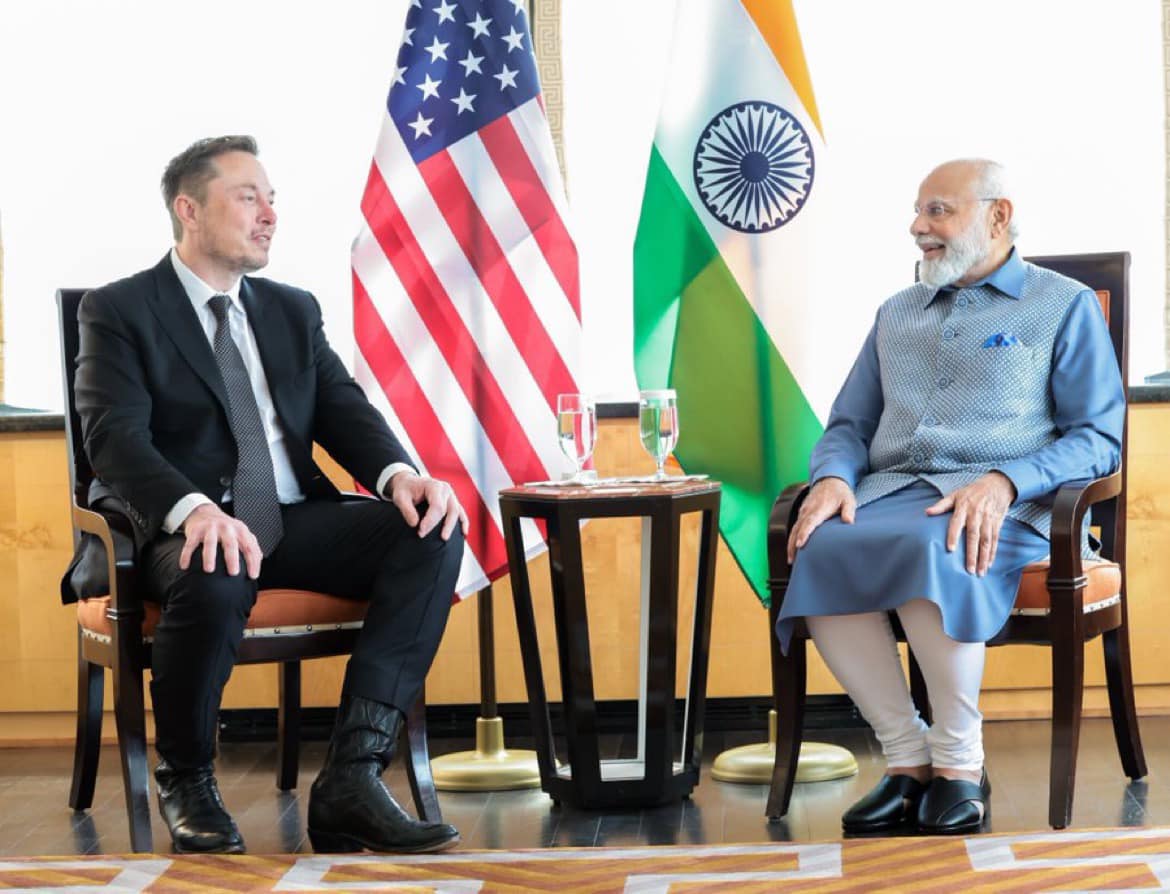
Pakyong, 16 April : Ahead of Elon Musk’s highly anticipated visit to India, where he is slated to meet with Prime Minister Narendra Modi, the Department of Telecommunications in India has reportedly fast-tracked the licensing process for SpaceX’s Starlink satellite internet unit. This move underscores the burgeoning interest in Musk’s ventures, given his multifaceted roles as the co-founder and CEO of Tesla, as well as the proprietor of SpaceX, a pioneering aerospace enterprise.
Musk’s visit is poised to herald significant announcements, with expectations running high regarding Tesla’s prospective investments in India, including the establishment of a manufacturing facility. Rumors abound that Tesla might forge partnerships with Reliance for electric vehicle (EV) batteries, hinting at the dawn of a new era in India’s automotive landscape.

Responding to Musk’s overtures, the Indian government has proactively eased regulations governing the import of fully assembled electric vehicles, signaling a welcoming stance towards Tesla’s entry into the burgeoning Indian market. Notably, preparations are reportedly underway at Tesla’s Berlin GigaFactory for shipments destined for India, further fueling speculation about the company’s imminent foray.
However, this isn’t SpaceX’s inaugural endeavor to introduce Starlink in India. In a bid to expand its footprint, Starlink initiated the application process for a global mobile personal communication by satellite services (GMPCS) license back in November 2022. Yet, the journey hasn’t been without hurdles, as regulatory disputes surfaced regarding pre-orders for terminals without requisite licensing. Despite earlier plans for satcom service trials in India, these ambitions were thwarted, prompting government intervention to mandate refunds for unlicensed operations.
Securing the GMPCS license marks an initial milestone for Starlink, paving the way for subsequent steps such as acquiring trial spectrum and piloting retail consumer services. However, navigating bureaucratic channels entails garnering approvals from key stakeholders, including the home ministry and security agencies, amid heightened security apprehensions voiced by the Indian government.
Addressing transparency concerns, Starlink has provided insights into its shareholding structure to the Department of Promotion of Industry and Internal Trade (DPIIT), citing adherence to US regulations. Notably, assurances have been extended regarding the absence of investors from countries sharing land borders with India, assuaging fears of external interference from neighboring nations.
In contrast, OneWeb, a fellow player in the satellite communication (satcom) arena, has surged ahead, securing trial spectrum for 90 days and obtaining essential authorizations from India’s space industry regulator, the Indian National Space Promotions and Authorization Centre (IN-SPACE). As competition intensifies, the stage is set for a dynamic interplay within India’s burgeoning satcom sector, poised at the intersection of technological innovation and regulatory scrutiny.





